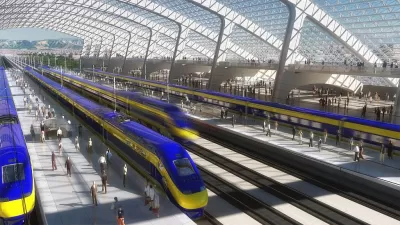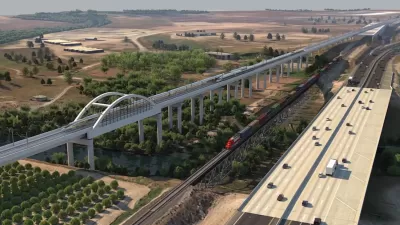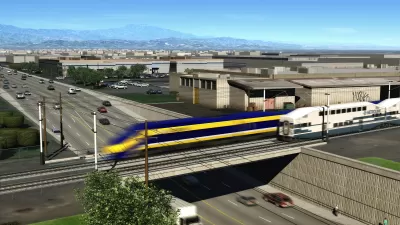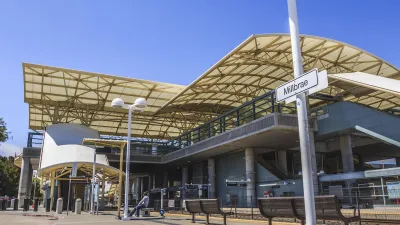With costs rising from $40 billion to $105 billion, the California High-Speed Rail project is still moving slowly along, though with a heftier price tag.

The California High-Speed Rail Authority (CHSRA) recently released the draft 2022 business plan for the California High-Speed Rail project. The draft business plan adds another $5 billion in cost to the already delayed and increasingly expensive project.
An article published by Roads & Bridges shares news of the new business plan, aggregating original coverage by Kathleen Ronayne for the Associated Press.
As noted by both articles, the estimated cost of the project was $40 billion when voters approved bond funding for the project in 2008. The project estimate now totals $105 billion.
Both articles provide coverage of the current funding opportunities in the mix for the project. California Governor Gavin Newsom's draft budget for the year, for example, proposes billions of dollars for rail and transportation projects, which could contribute funding if approved by the State Legislature. Meanwhile, Democrats in the California State Legislature closed out the 2021 legislative session by trying to revoke funding from the 2008 bond.
Then there is the federal government's see-sawing support for the project:
"Back in May 2019, the Federal Railroad Administration announced it was officially terminating its agreement with the CHSRA for the high-speed rail project, canceling nearly $1 billion in funding," according to Roads and Bridges. The Biden administration has since returned the funding, according to the article.
Governor Newsom has also wavered in support of the project in the past: In February 2019, Newsom announced plans to scale back the high-speed rail project.
FULL STORY: CALIFORNIA HIGH-SPEED RAIL AUTHORITY RELEASES DRAFT 2022 BUSINESS PLAN

Planetizen Federal Action Tracker
A weekly monitor of how Trump’s orders and actions are impacting planners and planning in America.

Maui's Vacation Rental Debate Turns Ugly
Verbal attacks, misinformation campaigns and fistfights plague a high-stakes debate to convert thousands of vacation rentals into long-term housing.

Restaurant Patios Were a Pandemic Win — Why Were They so Hard to Keep?
Social distancing requirements and changes in travel patterns prompted cities to pilot new uses for street and sidewalk space. Then it got complicated.

In California Battle of Housing vs. Environment, Housing Just Won
A new state law significantly limits the power of CEQA, an environmental review law that served as a powerful tool for blocking new development.

Boulder Eliminates Parking Minimums Citywide
Officials estimate the cost of building a single underground parking space at up to $100,000.

Orange County, Florida Adopts Largest US “Sprawl Repair” Code
The ‘Orange Code’ seeks to rectify decades of sprawl-inducing, car-oriented development.
Urban Design for Planners 1: Software Tools
This six-course series explores essential urban design concepts using open source software and equips planners with the tools they need to participate fully in the urban design process.
Planning for Universal Design
Learn the tools for implementing Universal Design in planning regulations.
Heyer Gruel & Associates PA
JM Goldson LLC
Custer County Colorado
City of Camden Redevelopment Agency
City of Astoria
Transportation Research & Education Center (TREC) at Portland State University
Jefferson Parish Government
Camden Redevelopment Agency
City of Claremont





























